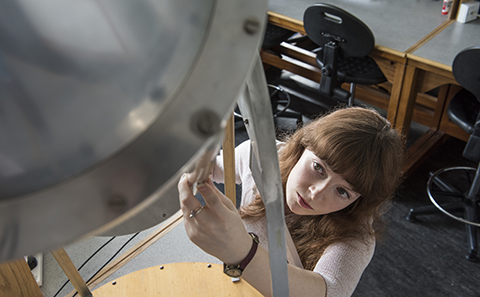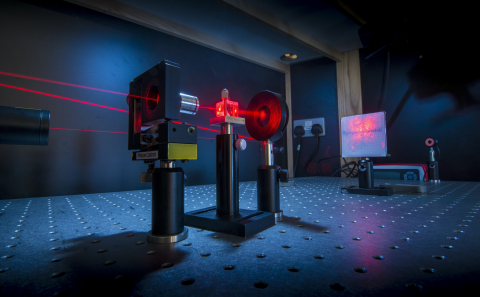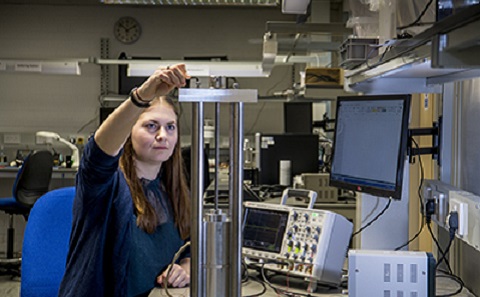
Discover your ideal degree
View our course pages to find the right physics degree for you. You can choose to study areas such as astronomy, space science, photonics, nanotechnology and mathematics.
One of the great things about choosing to study a physics degree is that it opens up a huge range of career options when you graduate. You’ll be prepared for a role in the physics industry, or further study, if that’s the route you are interested in. But the skills and knowledge you develop will also be valued in careers in a wide range of fields, such as finance, engineering, law or business. Your degree will demonstrate to any employer that you are intellectually curious, insightful and not afraid of a challenge.
By studying a degree in physics and astronomy, you’ll develop key skills which will be valuable to employers in any sector, such as:
The transferable skills and knowledge you develop on your degree will prepare you for a wide range of careers. You might be interested in a role which is directly related to your degree, in a field such as astronomy, space science, nanotechnology, photonics, medical physics, meteorology or geophysics.
Many students choose to go onto further study at PhD level. The international reputation of the School of Physics and Astronomy at Southampton means our graduates are able to secure PhD positions across the world.
Or, you might prefer to use your skills and knowledge to pursue a career in a different field. Your skills will be valued in professions such as accounting and finance, digital marketing, law, business, scientific journalism, manufacturing, engineering, teaching, computer science and software engineering.
Here are just some of the roles our graduates have gone on to:
View our careers pages to find out more about how Southampton will help you get to where you want to be.

View our course pages to find the right physics degree for you. You can choose to study areas such as astronomy, space science, photonics, nanotechnology and mathematics.

Download our Physics and Astronomy subject brochure, or order one to be sent through the post.

We’ll help you to find a paid, summer placement, so you can develop employability skills and develop links with organisations.